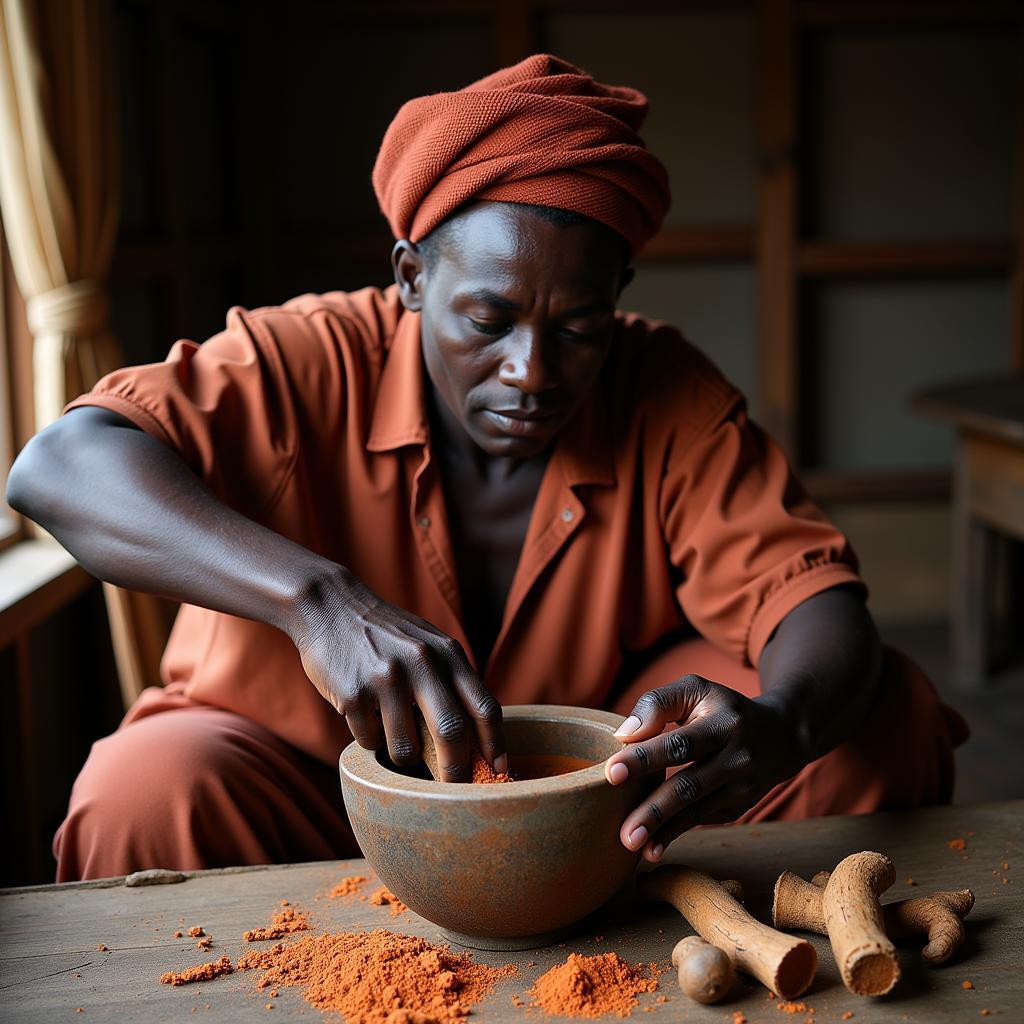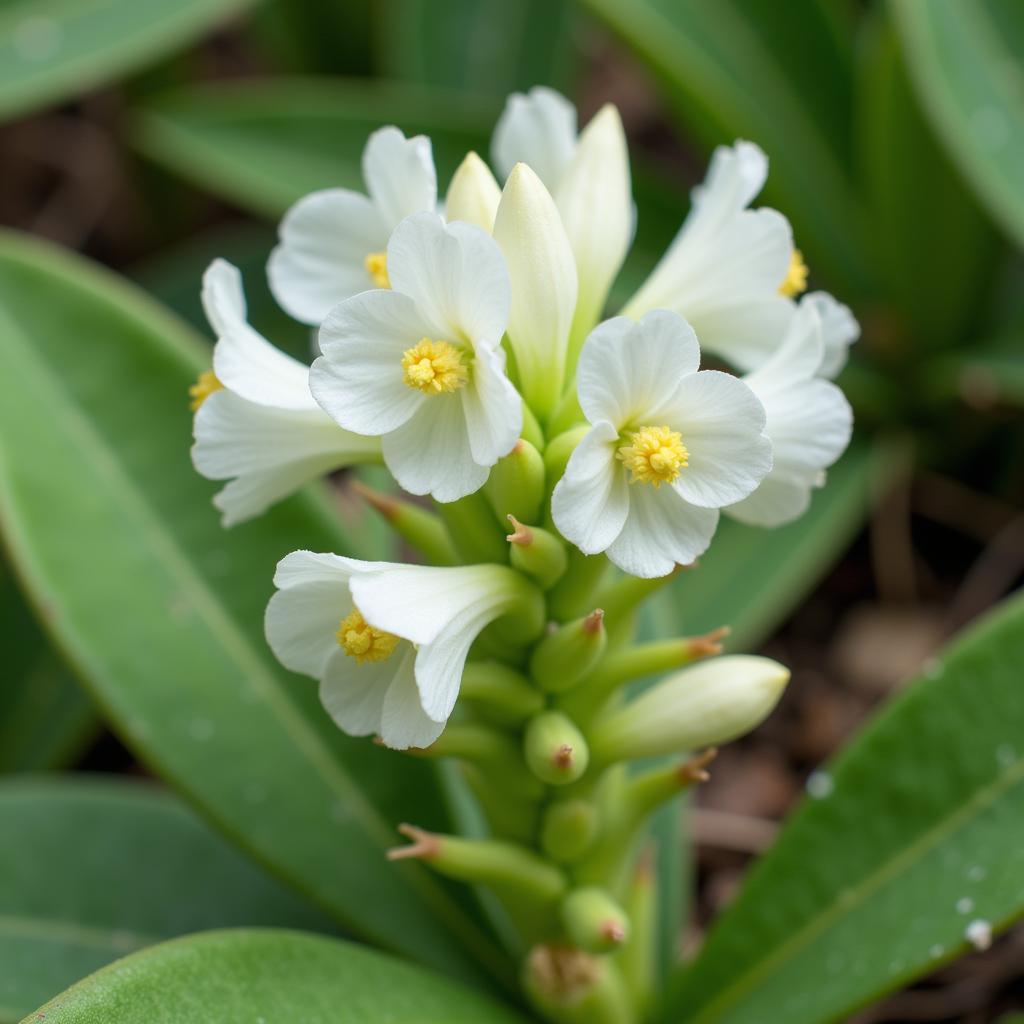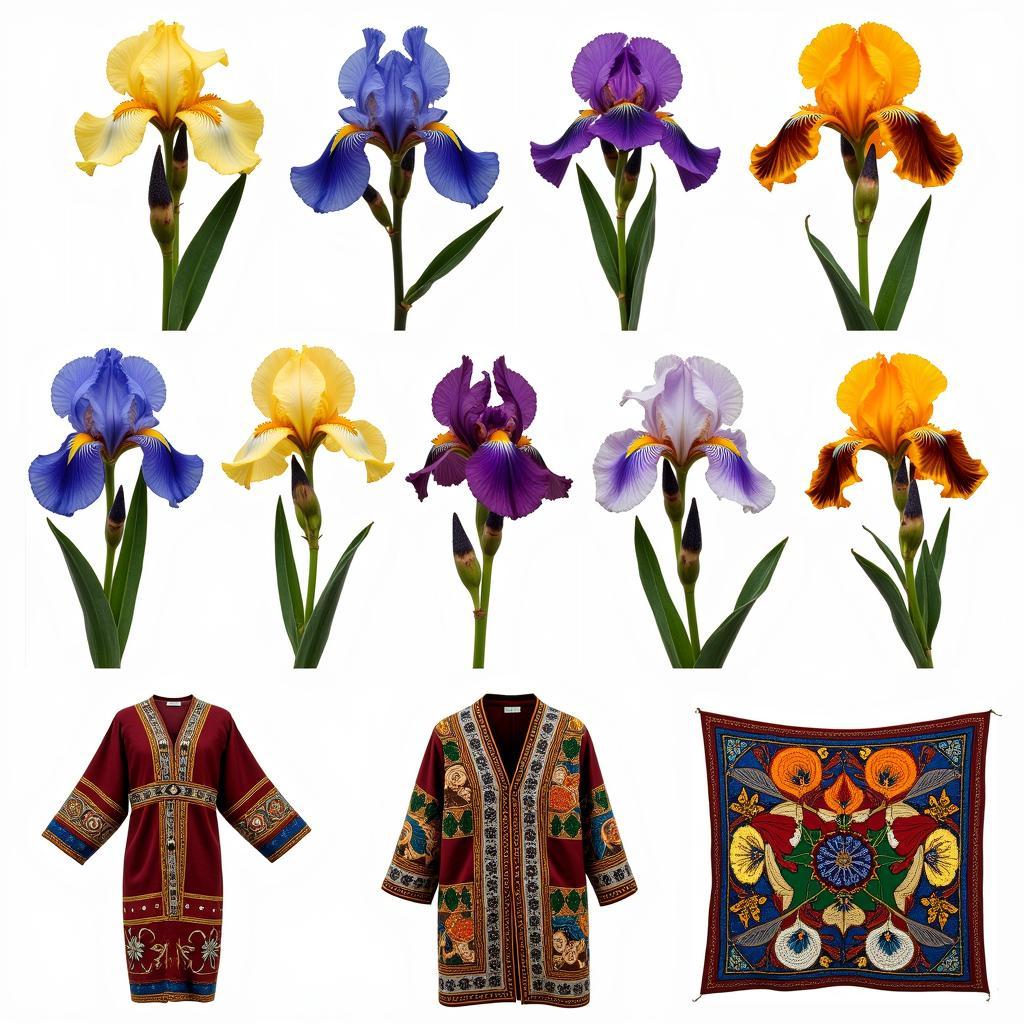Unraveling the Mysteries of the African Dream Root
The African Dream Root, also known as Silene capensis, is a powerful plant revered for its dream-enhancing properties by the Xhosa people of South Africa. For centuries, this unassuming white-flowered succulent has played a vital role in their spiritual traditions, guiding them through the realm of dreams to find answers, healing, and connection with their ancestors. We’ll explore the fascinating world of the African dream root, delving into its history, traditional uses, and potential benefits.
The Xhosa and the Sacred Ubulawu
The Xhosa people call the African dream root ubulawu, meaning “medicine for dreams”. They believe that the plant acts as a conduit to the ancestors, allowing them to communicate and receive guidance through vivid, prophetic dreams. Traditionally, the root is prepared by a trained healer or diviner who understands the specific rituals and practices involved. The preparation method, dosage, and intention behind its use are crucial elements in achieving the desired dream experience.
The Xhosa value dreams as a powerful tool for self-discovery, problem-solving, and spiritual growth. They believe that dreams can reveal hidden truths, offer solutions to challenges, and provide insight into the future. By using ubulawu, the Xhosa actively seek these dream experiences, making it an integral part of their spiritual and cultural heritage.
Traditional practices surrounding ubulawu are often kept within the community, passed down through generations of healers. These rituals are deeply rooted in Xhosa cosmology and beliefs.
After this introduction to the African dream root’s significance within the Xhosa culture, we can now explore how it is prepared and used.
Preparation and Usage of the African Dream Root
The most common method of preparing ubulawu involves grinding the dried root into a fine powder. This powder is then mixed with water to create a milky white liquid. The mixture is consumed on an empty stomach, usually in the morning or before bed. The dosage can vary depending on the individual and the specific intention behind its use.
The effects of the African dream root are not immediate. It may take several days or even weeks of consistent use before noticeable changes in dream activity occur. Some individuals report experiencing extremely vivid and lucid dreams, while others note an increase in dream recall and a heightened sense of clarity within their dreams.
It’s important to respect the traditions surrounding the use of ubulawu and avoid approaching it with a purely recreational mindset. The Xhosa consider this a sacred plant with deep spiritual significance.
 Preparing African Dream Root
Preparing African Dream Root
Potential Benefits and Scientific Research
While anecdotal evidence suggests numerous benefits associated with the African dream root, scientific research on the plant is still limited. Some preliminary studies have explored its potential anxiolytic and anti-inflammatory properties. Further research is needed to fully understand its chemical composition and potential therapeutic applications.
The reported benefits of the African dream root include improved dream recall, increased dream vividness, and enhanced lucid dreaming. Some users also report experiencing a greater sense of self-awareness and emotional clarity. However, it’s crucial to remember that these are primarily anecdotal accounts, and scientific evidence supporting these claims is still lacking.
Navigating the World of Dreams with Ubulawu
The African dream root, or ubulawu, offers a unique window into the world of dreams. For the Xhosa people, it’s a powerful tool for spiritual connection, healing, and self-discovery. While scientific research is still catching up with traditional knowledge, the centuries-old practices surrounding this fascinating plant continue to intrigue and inspire. Understanding its cultural significance and respecting its traditional use are essential for anyone seeking to explore the potential of the African dream root.
african american ballerina The rich cultural heritage of Africa extends far beyond traditional medicine. For instance, the arts play a crucial role in expressing and preserving African identity.
 African Dream Root Plant
African Dream Root Plant
african games football Just like the passion for exploring the spiritual realm, the passion for sports, such as football, also runs deep in many African communities. It brings people together and fosters a sense of unity.
Conclusion
The African dream root, a powerful plant steeped in Xhosa tradition, offers a fascinating glimpse into the world of dreams and their significance in different cultures. Its potential to enhance dream experiences and facilitate spiritual connection continues to intrigue researchers and individuals alike. As we continue to unravel the mysteries surrounding ubulawu, it is crucial to approach it with respect and acknowledge its cultural importance.
FAQs
- What is the scientific name for the African dream root? Silene capensis
- What is the traditional name for the African dream root among the Xhosa? Ubulawu
- How is the African dream root traditionally prepared? The dried root is ground into a powder and mixed with water.
- What are the reported benefits of using the African dream root? Improved dream recall, increased dream vividness, and enhanced lucid dreaming.
- Is there scientific research on the African dream root? Limited research exists, primarily focused on its potential anxiolytic and anti-inflammatory properties.
- Where can I learn more about Xhosa culture? Check out resources like african american women beauty.
- Are there any movies about African children’s adventures? Check out african child adventure movies list.
Other questions that might arise could include how to ethically source the African dream root, potential side effects, and interactions with other medications. We encourage further exploration of this fascinating plant and its cultural significance. For more information about ethnobotany in Africa, you could explore resources like african coca tree.
When you need support, please contact us by Phone: +255768904061, Email: kaka.mag@gmail.com Or visit us at: Mbarali DC Mawindi, Kangaga, Tanzania. We have a 24/7 customer support team.



